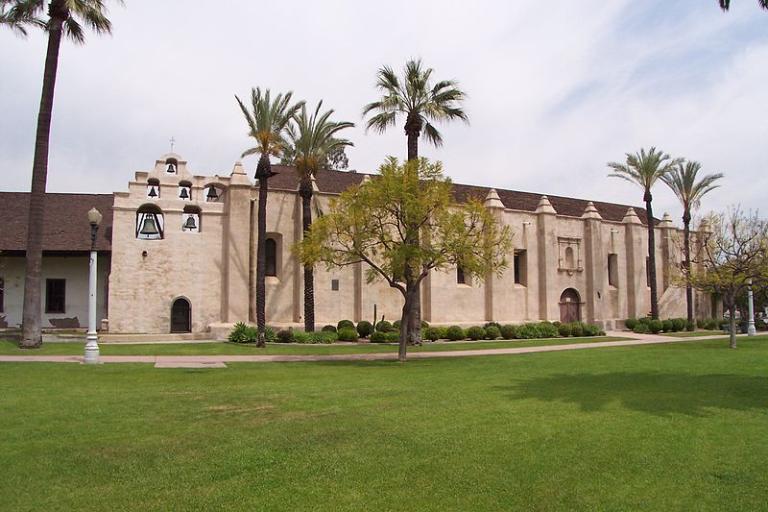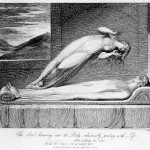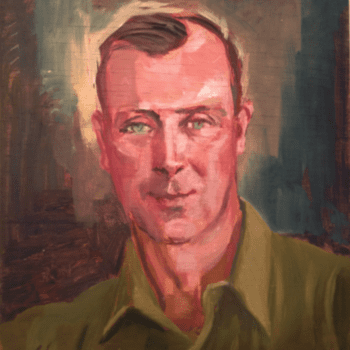
With three of our friends, my wife and I formed a tiny book group a couple of years ago, or thereabouts. We meet roughly once a month, though a little bit irregularly, for dinner and conversation. Our book for tonight is Great Expectations, by Charles Dickens. (It’s too bad, by the way, that Dickens will probably never write the sequel, No Expectations: Mr. Pip Goes to Egypt.)
I’m trying to recall whether I’ve ever actually read Great Expectations before. If I did, it was a very long time ago — though I remember seeing, probably while I was an undergraduate at BYU, the old 1946 black and white film version of the story — starring (among others) Sir John Mills, Dame Jean Simmons, and Sir Alec Guinness — that was directed by Sir David Lean, inspired by a stage version written by Sir Alec Guinness. Wikipedia tells me that Sir David’s Great Expectations has been voted by somebody or other as the fifth greatest British film of all time. Which scarcely surprises me, since David Lean (The Bridge Over the River Kwai, Doctor Zhivago, Lawrence of Arabia, Ryan’s Daughter, etc.) has been one of my very favorite movie directors since I began noticing movie directors. Ryan’s Daughter, in fact, was the centerpiece of one of my best high school dates, with my most significant high school girlfriend.
I’ll ask you to bracket the subject of Great Expectations, though, if only for a few seconds. I’ll return to it shortly.
Unbelievably to me, today marks the twentieth anniversary of my father’s death. I still remember my brother’s phone call, telling me the news, and my stunned reaction to it. I had actually visited with Dad in California just a couple of days before, and had prayed earnestly that he would be taken soon, that he might be delivered from the prison of blindness and increasing disability that bound him. When the call came, though, I was anything but happy or relieved. It was late morning, but I still hadn’t showered. I recall going into the shower and standing there, leaning against the shower wall with the water running over me, sobbing.
In the southern California town in which I grew up, there were (as I think about it now) three rough socio-economic areas, declining in wealth and status from north to south. My parents and I lived in the middle of those three zones. We weren’t poor — soon after my mission, in fact, my parents built a larger and obviously newer home in another suburban town approximately an hour’s drive away; my childhood home was bulldozed many years ago — but we certainly didn’t live in one of the larger houses in the leafier area of town to the north. And here, sadly, is where Great Expectations comes in, though it will take me a little while to get directly to it.
One year, when I was a sophomore, I participated on my high school’s debate team. (I can’t recall why I took only a single year of debate, because I enjoyed it and was reasonably good at it. Probably class conflicts.) Anyway, on one occasion we were coming back from a two-day out-of-state tournament. As I recall, it had been at Arizona State University. One of the parents, or maybe the debate coach, was driving us in a station wagon — does anybody remember those? — and dropping us off at our houses.
The best debater on our team was a senior, the older sister of the girlfriend that I mentioned above. She and her family lived in one of the bigger houses northward, set back from the road across a large green lawn and surrounded by beautiful and mature trees. Her father was a prominent physician. My mother had never attended college, my father had managed to get in a couple of years at a junior college and owned a construction company. I didn’t want to impress her negatively. Remember, she was a senior, and I was fourteen or maybe fifteen. And she was my girlfriend’s older sister.
I was, to my disgrace, hoping against hope that she would be dropped off first, so that she wouldn’t see the neighborhood and the house in which I lived. But we soon rolled up across the street from my parents’ modest house.
To my everlasting shame, as I prepared to exit the car, I said something dismissive — something derogatory, insecure, and self-defensive — about my house. I can’t recall what it was, but I was embarrassed. And that drew a gentle rebuke from Cathy (which may or may not be her real name). Again, I can’t remember what she said, not even slightly, but I remember that it embarrassed me even more. If I had been desperately trying to avoid making a bad impression, I had failed terribly. I had embarrassed myself much more fundamentally than a modest house could ever have done. I walked into my perfectly nice and loving home feeling utterly wretched, and quite deservedly so.
Cathy probably forgot this petty episode within minutes. I myself, though, have never quite forgotten it, though I don’t think about it often. Perhaps not even every year. I don’t think that I’ve ever mentioned it to anyone before. Not even to my wife. (I like to think that she would be surprised by it, and that she would think the episode unrepresentative of me.) But Great Expectations brought it back forcefully, and a bit painfully, to my mind.
One of the themes of Great Expectations is Pip’s unhealthy desire to be a “gentleman” and to rise above the station in which he was born — his desperation to not be “common.” There is nothing wrong with ambition, of course. But Pip doesn’t appreciate the virtues of the place in which he was raised or the virtues of the people with whom he associated before he obtained his “great expectations,” and he is ungrateful. Most painfully, he is embarrassed by them, ashamed of them, and tries to conceal his connections with them, even though they are quite clearly better people than he is. He is mortified when he learns the identity of his benefactor, Abel Magwitch. He fails to recognize the jewel that he could have had in Biddy — instead, and to his great cost, going after Estelle instead.
Cathy wasn’t Dickens’s Estelle, of course — quite the opposite — and my father wasn’t Joe Gargery, although, like Dickens’s Joe, he was a “mild, good-natured, sweet-tempered, easy-going” man who was a wonderful father to me during my childhood and ever after. But I felt the sting of Dickens’s rebuke just as, on that sunny afternoon many years ago, I felt Cathy’s.
It was, I’m happy and relieved to say, a very brief episode. I wasn’t required to go through the multi-year, novel-length moral education that Pip received in order to recognize my arrogantly insecure folly. My behavior that day was, in a fundamental way, dishonest. I treasured my parents, and I still do.
I miss them. On my father’s tombstone, along with his name and dates, we inscribed simply this: “A good man.” I cannot imagine anything better to have written about him.













